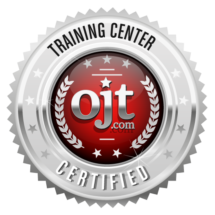
INDUSTRY-LEADING LIVE
INSTRUCTOR-LED TRAINING
World Class Training Content, Delivered On-Demand
BRIDGING THE GAP
between career seekers
& employers
from COAST-TO-COAST

World Class Training Content, Delivered On-Demand
between career seekers
& employers
from COAST-TO-COAST
HVAC (R)
QUALIFICATIONS
HVAC (R) stands for Heating Ventilation Air-Conditioning & Refrigeration. A high school or General Educational Development (GED) or diploma, with or without an Associate or Bachelor’s Degree for HVAC (R) technicians, and a mandatory Bachelor’s Degree for HVAC (R) Engineers, accompanied with HVAC (R) technicians certifications from the North American Technician Excellence (NATE), American Society of Heating, Refrigerating and Air-conditioning Engineers (ASHRAE), Refrigeration Service Engineers Society (RSES), Refrigerating Engineers and Technicians Association (RETA), etc.; and Licensure credentials from U.S. Environmental Protection Agency (EPA), HVAC Excellence or Partnership for Air-Conditioning, Heating, Refrigeration Accreditation (PAHRA). encompassing a six month to 2-year requisite study and practice credit hours; combined with – instruction based On the Job Training (OJT) programs, Apprenticeships, HVAC (R) Workforce Job Training or Experience; covering HVAC (R) work topics including working with HVAC (R) equipment that uses coolants & refrigerants, a hazardous compound requiring sensitive handling, Hydronics – heating and cooling systems, Thermodynamics & heat transfer principles, piping principles and practices, load calculations, indoor and ambient temperature and environment considerations, environment protection, pollution, and global climate change and sustainability; automation and control networks, real-world HVAC (R) applications, design, integration, installation, commissioning, and maintenance of whole building HVAC (R) systems, apparatus, tools, and equipment, allied materials, and safety protocols.
AVERAGE HOURLY PAY
(Credits: www.payscale.com)
| Entry-level (0-12 months) | $ 15.08 |
| Early career (1-4 years) | $ 16.53 |
| Mid-career (5-9 years) | $ 19.70 |
| Experienced (10+ years) | $ 21.89 |
AVERAGE ANNUAL PAY
(Credits: www.payscale.com)
| Entry-level (0-12 months) | $ 59,133 |
| Early career (1-4 years) | $ 63,587 |
| Mid-career (5-9 years) | $ 75,037 |
| Experienced (10+ years) | $ 80,301 |
PROJECTED GROWTH
(Credits: www.bls.gov)
HVAC (R) is an in-demand occupation, in which employment is projected to grow at a steady 4 percent from 2019 to 2029.
SKILLS/ TRAITS NEEDED
Besides excellent HVAC (R) installation, commissioning and maintenance skills, HVAC (R) technicians must have sound knowledge of Hydronics – heating and cooling systems, Thermodynamics & heat exchange/ transfer, and environment protection; be self-motivated, self-organized with the ability to read, understand and follow blueprints ^ diagrams, using safe work practices; with dexterity, extreme focus, memory, and attention to detail, and the ability to work independently or as part of a team, ensuring timely work completion of their tasks in hand. They also must be professional, ethical, proactive, agile, and alert with a high degree of patience and perseverance; have the willingness to learn and adapt, with great listening communication, and interpersonal skills.
WORK FUNCTIONS
HVAC (R) technicians and engineers work on designing, installing and commissioning, and maintaining heating and cooling systems for Air-Conditioning, Heating, and Refrigeration – for residential, commercial, and manufacturing units. The work entails reading, understanding, and following blueprints and codes, working with equipment that uses refrigerants, sensitive handling of hazardous chemicals and compounds, strictly adhering to environment safety and protection guidelines issued by US EPA; for the various HVAC (R) applications, using appropriate tools, and equipment, allied materials, and safety protocols. They typically construct and fit complete building cooling and heating systems solutions, conduct regular inspections, prepare reports and suggest remedial actions and recommendations based on the local and state building codes, and troubleshoot, repair, and maintain malfunctioning HVAC (R) systems. They may set up their own business and work independently, or work for the government, or private contractors and employers. They may sometimes be needed to work in shifts.
Related Careers